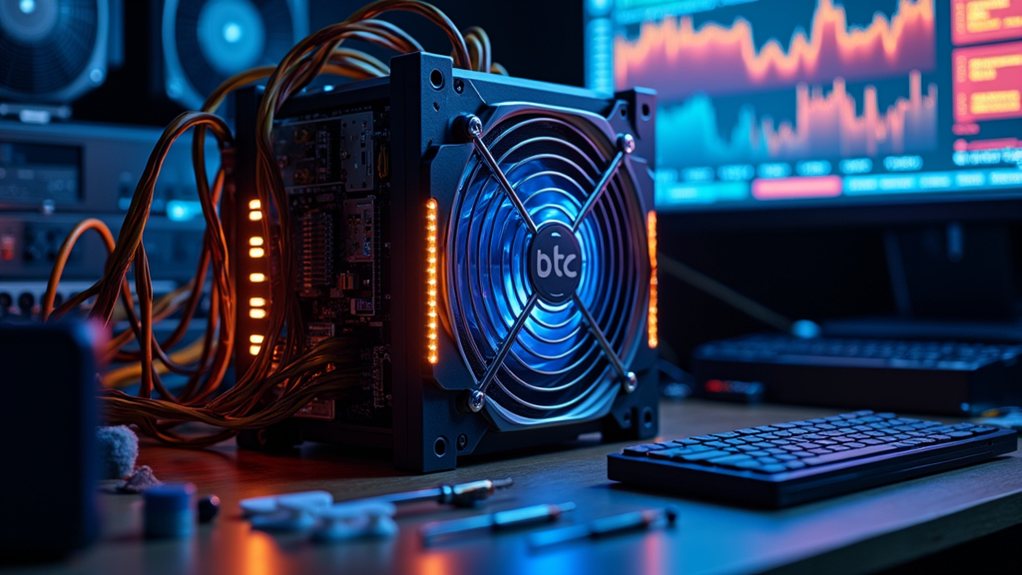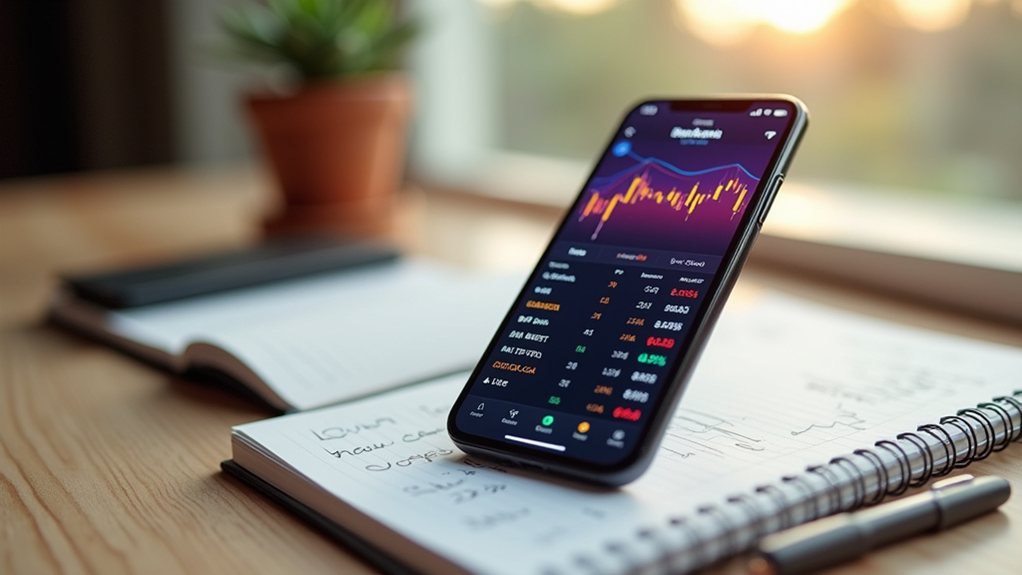Banks could disappear as cryptocurrencies eliminate middlemen and slash fees to near-zero. Digital wallets would replace savings accounts and mortgages, while 2.5 billion unbanked people gain financial access through smartphones. Money transfers would happen instantly across borders. No more identity theft from bank breaches, but lose your crypto password? Tough luck—no customer service to bail you out. The financial revolution comes with serious trade-offs.
While traditional banks have dominated our financial lives for centuries, the rise of cryptocurrency threatens to upend that reality entirely. The banking system we've grown up with—branches, tellers, ATMs, annoying fees—could become as obsolete as phone booths. Cryptocurrency promises a decentralized financial system where middlemen get kicked to the curb. No more banks taking a cut of every transaction or deciding when you can access your money. Just you and your crypto wallet, available 24/7.
Imagine waking up tomorrow and your savings account is now a digital wallet. Your mortgage? Handled through a decentralized lending platform. Investment portfolio? Living on a DeFi protocol. Those bank branches with their uncomfortable chairs and free lollipops? Gone. The 2.5 billion unbanked people worldwide suddenly have financial access through a $50 smartphone. Kind of makes those bank commercials about "being there for you" seem a bit hollow.
The future of finance isn't just innovative—it's inevitable. Banks won't disappear overnight, but their downfall might be faster than you think.
The way we pay for stuff would transform overnight. Buying coffee would mean scanning a QR code and sending cryptocurrency—instant, with minimal fees. International money transfers that once took days and cost a fortune would happen in seconds for pennies. Technologies like Lightning Network already enable instant, nearly costless Bitcoin payments that traditional banks can't match. Merchants would save billions in credit card processing fees. Your grandmother might struggle with the change, but she struggled with ATMs too, remember?
Privacy and security would work differently, too. No more identity theft from data breaches at financial institutions. But lose your crypto wallet password? Tough luck. Your money's gone forever. No customer service line to call. The security is better, but the responsibility is all yours. However, this is where the lack of insurance for cryptocurrency holdings becomes a serious concern compared to traditional bank accounts. Not everyone wants to be their own bank. Some people can barely remember their email password.
Regulators are terrified of this future. Central banks lose control of monetary policy. Tax evasion becomes easier. Money laundering gets more complicated to track. Governments would scramble to create new rules, but blockchain doesn't care about national borders. International cooperation would become essential, and when has that ever worked perfectly?
The economic impact would be seismic. Fractional reserve banking might decline, changing how money is created. Traditional banking jobs would disappear while crypto development roles explode. New economic indicators would emerge to track crypto adoption rather than traditional metrics.
All of this requires massive technological infrastructure improvements. Blockchain networks need to scale dramatically. User interfaces need to become grandparent-friendly. Smart contracts must be bulletproof. The entire system demands enhanced cybersecurity. Through innovative decentralized applications, users could access financial services ranging from lending to trading without ever interacting with a traditional financial institution.
Maybe banks won't disappear entirely. But they'll certainly have to change. The financial revolution is coming, ready or not. Traditional banks can adapt or perish. And honestly, after decades of fees and fine print, not everyone would mourn their passing.
Frequently Asked Questions
How Would Mortgages and Large Loans Work in a Crypto-Only System?
Crypto-backed mortgages would use digital assets as collateral instead of down payments.
Borrowers could secure loans up to $5 million with 30-year terms, similar to traditional mortgages. The system would likely involve smart contracts automating payments and terms.
Risky? Hell yes. Crypto's volatility could trigger margin calls. No FDIC insurance either.
But hey, approval processes would be faster, and you'd avoid capital gains taxes. Win some, lose some.
Could Governments Effectively Tax Crypto-Based Financial Systems?
Governments face an uphill battle taxing crypto systems.
They're deploying blockchain analytics and forcing exchanges to collect KYC data, but decentralized platforms remain elusive.
Some countries are forming international agreements to share tax information—smart move.
The tech evolves faster than regulations, though.
Funny how bureaucrats always catch up eventually.
The future probably includes AI-powered enforcement and blockchain-native taxation.
No financial system truly escapes the taxman forever.
What Happens to My Crypto Assets if I Die?
Without proper planning, crypto assets can vanish forever when someone dies.
Unlike traditional bank accounts, there's no customer service to help heirs. Private keys? Lost forever without documentation.
Some folks use inheritance services or dead man's switches. Others set up multi-signature wallets with trusted people. Smart contracts can automate transfers, but they're not foolproof.
Bottom line: no planning means potentially inaccessible digital wealth. Forever.
How Would Crypto Handle Reversing Fraudulent Transactions?
Crypto transactions can't be reversed. Period. Once confirmed on the blockchain, your money's gone—whether you meant to send it or not.
Some solutions exist: escrow services, smart contracts with dispute mechanisms, and specialized insurance. Third-party services might offer protection, but they undermine crypto's decentralized nature.
Newer blockchain protocols are exploring reversible transactions, but they're not mainstream. For now? You mess up, you pay up.
Would Insurance for Crypto Deposits Ever Match Traditional Banking Protections?
Insurance for crypto deposits probably won't match FDIC protection anytime soon.
Private insurers are stepping up, but they're limited. The volatility of crypto makes it a nightmare to insure properly. Some exchanges claim to have reserves—sure, until they don't.
Decentralized insurance protocols are emerging, though.
Truth is, traditional banking's 89-year head start with government backing is hard to beat. Crypto's still figuring it out.








